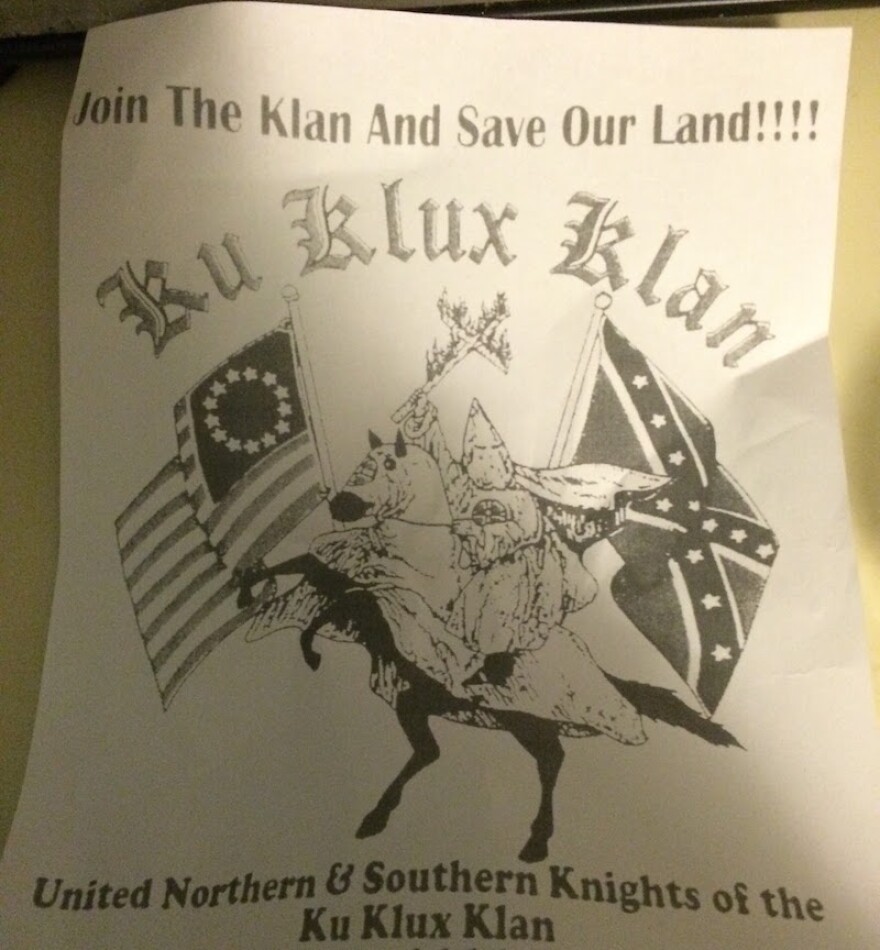The Vermont Chapter of the American Civil Liberties Union is calling on the Vermont Supreme Court to overturn the conviction of a man who posted Ku Klux Klan flyers on the homes of two women of color in Burlington.
James Lyall, the executive director of the Vermont Chapter of the ACLU, said the ACLU doesn't support the KKK and has worked for decades to promote racial justice. But he said criminally convicting William Schenk of criminal wrongdoing is a step in the wrong direction.
Schenk was convicted of disorderly conduct with an added penalty for hate crimes after he posted KKK recruitment flyers on the homes of two Burlington women. He is appealing the case on the grounds that the Vermont law he was convicted of violating is an unconstitutional restriction on his right to free speech.
“It's really important for people to engage with these issues rather than have the knee-jerk response that we're going to let the government decide which speech is allowed and which speech is not,” Lyall said.
Lyall said the answer to offensive speech is more speech – a robust dialogue about institutional racism in America – not criminal prosecution.
The ACLU filed an amicus brief with the Vermont Supreme Court, arguing that the state hasn't sufficiently proven that Schenk's intent was to threaten the women who received the flyers, so posting them should be protected by the First Amendment.
"The state's position was that this was threatening conduct because it was specifically intended to people of color." - TJ Donovan, Chittenden County State's Attorney
Chittenden County State's Attorney TJ Donovan said the content of a KKK flyer is inherently threatening, especially if the flyer is targeted at people of color. Even though Schenk has denied targeting the two women, Donovan said the facts of the case prove otherwise.
“In the city of Burlington, the only people that received these flyers on these dates and times were these two women, and so the state's position was that it was directed and specifically intended towards these two women,” Donovan said.
But Donovan also said he welcomes the ACLU brief on the case, because the Supreme Court's decision will be important in helping Vermont strike the right balance.
“You never want to overreach, but at the same time you want to protect people, and the state's position was that this was threatening conduct because it was specifically intended to people of color,” Donovan said.
But Lyall says the state did overreach.
“The principle of free speech must apply to everyone or it can be denied to anyone,” Lyall said.
Schenk has already served a 120-day prison sentence for posting the flyers, but the Supreme Court's decision on the case will set an important precedent for how the state deals with offensive and hateful speech in the future.





